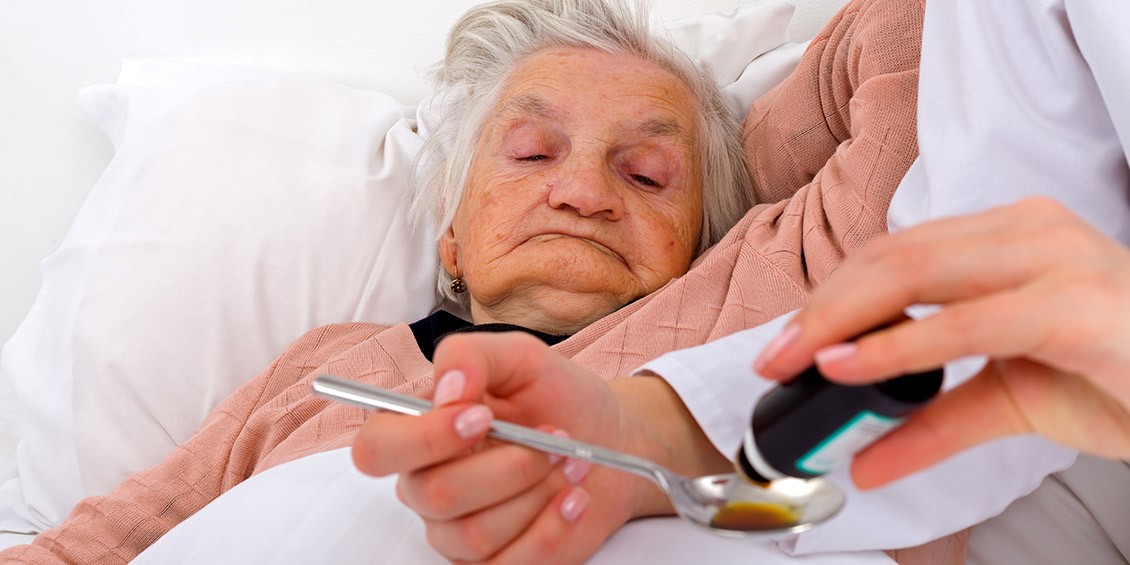Team-based care to bridge the divide in cognitive decline

Practitioners, researchers, and trainees in medicine, pharmacy, nursing, and dentistry will navigate through the difficult terrain of ensuring safe, effective medication use in older adult patients experiencing cognitive decline at the National Institute on Aging-supported Geriatric Medication Safety Symposium April 13-14 in Houston’s Texas Medical Center.
Now in its second year, the symposium – themed “Team-based Care to Bridge the Divide in Cognitive Decline” – is supported by a five-year National Institute on Aging grant awarded to the University of Houston College of Pharmacy (UHCOP) and the McGovern Medical School at UTHealth Houston.
Medication safety in the older adult population – especially in those experiencing or at risk of cognitive impairment – necessitates a highly coordinated and monitored care plan, said Holly M. Holmes, MD, MS, AGSF, Joan and Stanford Alexander Chair in Gerontology, professor and director of the Joan and Stanford Alexander Division of Geriatric and Palliative Medicine, and vice president of community engagement at UTHealth Houstoon.
“Medication risks can be particularly important in cognitive health, and certain medications can increase confusion, memory loss, and fall risk – all things that older people really want to avoid,” said Holmes, who serves as symposium co-chair and NIA grant co-principal investigator. “We will be focusing on these particular medications and their risks, as well as how to most safely manage medication therapy in older adults with memory disorders.
“Medication safety for people with cognitive impairment requires the whole team: the patient and especially the family or caregiver, along with nursing, home health providers, and pharmacists; all can play key roles in reducing risk.”
The symposium is being presented in a hybrid format, with the first day dedicated to virtual workshops and the second day slated for plenary sessions as well as podium and poster presentation of accepted abstracts held at UTHealth’s Denton A. Cooley, MD and Ralph C. Cooley, DDS University Life Center, 7440 Cambridge St. in Houston’s Texas Medical Center.
Among the lineup of local and national experts in geriatric medication safety and dementia care presenting talks and workshops over the two-day event are: Ryan M. Carnahan, PharmD, MS, professor and director of graduate studies at The University of Iowa College of Public Health; Carolyn K. Clevenger, RN, DNP, AGPCNP-BC, GNP-BC, FAANP, professor and associate dean for Transformative Clinical Practice at Emory University Nell Hodgson Woodruff School of Nursing; Katie Scott, MPH, president of the Houston-based nonprofit organization CarePartners; and Joseph W. Shega, MD, executive vice president and chief medical officer of VITAS Healthcare.
The first day of the symposium on Thursday, April 13, is set aside for two virtual workshops: “Measuring and Minimizing Anticholinergic Burden in Older Adults” by Carnahan and “Family-Centered Care” by Scott.
The second of the symposium will include podium and poster presentations of accepted abstracts and four plenary sessions: “Assessment and Management of Disruptive Behaviors in Persons with Dementia” by Shega; “Age-friendly Medication Use: A Closer Look at Anticholinergics, Antipsychotics, and Anticonvulsants” by Carnahan; “Family Caregivers: The Hidden Healthcare Workforce” by Scott; and “Updates in Defining, Diagnosing, and Treating Alzheimer’s Disease” by Clevenger.
“We’re excited about building on the success of our first year of discussions and networking across multiple professions and disciplines to develop greater awareness of our respective practice experiences and data and how our collaborations in evidence-based approaches can help ensure older adult patients are getting the safest, most appropriate care,” said UHCOP Mustafa & Sanober Lokhandwala Professor Rajender R. Aparasu, PhD, symposium co-chair and NIA grant co-principal investigator.
Visit the GMSS webpage for more information or visit the GMSS registration page to sign up before the April 3 deadline.